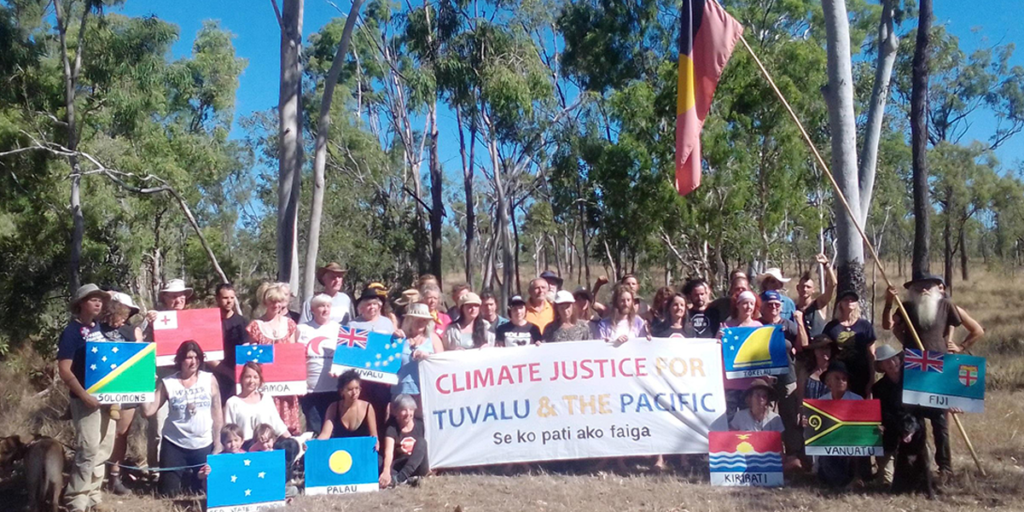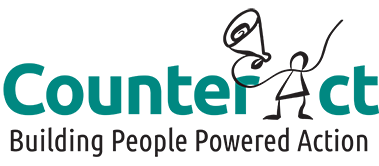
What do we mean when we talk about Climate Justice? When understanding and engaging with the global climate crisis, it is easy to overlook that the impacts are not being felt equally. Likewise, they will not be felt equally in the future.
Climate Justice and working to halt fossil fuel expansion was one of our largest project areas – we worked with Frontline Action on Coal in the Leard forest, and then Camp Binbee – at the frontlines of the Adani coal mine, as well as supporting resistance to fracking and gas expansion in the Kimberley, Victoria’s Gippsland region and the Pilliga in NSW. We will be writing more about this in future, but some brief case studies are linked below – the common theme among most of these campaigns was involvement with, and leadership from Aboriginal people – and included really inspiring elements such as the “treaty” agreement that was made between Gomeroi people and environmentalists in the Leard forest.
This kind of collaboration is critical as Climate Justice is about centring the most marginalised communities with our efforts. We must elevate those voices. It is important to ensure that campaign efforts and objectives are led by those communities. You can learn more about the practical steps we can all take for climate justice.
An overwhelming amount of work is needed to mitigate and adapt to climate change. Below are resources to understand more about the intersections, and case studies of successful work. Other historically excluded communities include:
- culturally and linguistically diverse people,
- folk who aren’t neurotypical,
- older people,
- and many others.
Our movements need to do more, to truly understand what it means to approach the challenges we face with a completely aware perspective of just solutions to the climate crisis.
Climate Justice Resources
We compiled this collection of resources in collaboration with the Women’s Climate Justice Collective (WCJC).
- Disability: Resources relating to including and considering disabled people and their needs. Includes impacts, the need for collaboration, and disabled-led resistance.
- Economic Disadvantage: Those who experience economic and social disadvantage disproportionately face issues of climate justice. This includes renters, the homeless, and prisoners.
- First Nations: Centring Aboriginal and First Nations people in decision making relating to climate issues. Includes learning from their land management practices.
- Gender: Resources for gender-just solutions, including feminism and intersectionality, and working with women and LGBTQIA+ communities.
- Talking about Climate Justice: Facts and statistics to help with talking about climate issues. Plus some of the organisations that are working in this space.
- Practical Climate Justice: Ideas for practical / tangible approaches to working towards climate justice. Includes groups to support and opportunities to look for.
